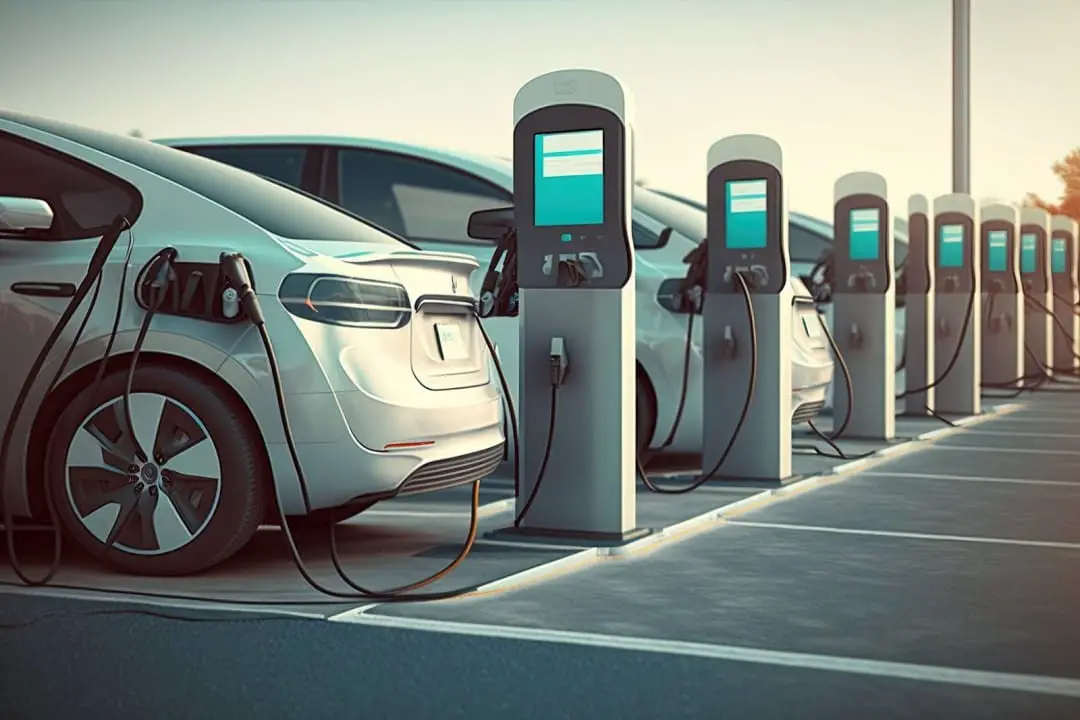EV Manufacturing Shows Signs of Promise in Africa.
Africa, often seen as a continent rich in natural resources but lagging in industrial development, is now making significant strides in electric vehicle (EV) manufacturing.


Africa, often seen as a continent rich in natural resources but lagging in industrial development, is now making significant strides in electric vehicle (EV) manufacturing.
As the world shifts towards cleaner energy and sustainable practices, Africa's role in the global automotive industry is evolving, showing promising signs of becoming a key player in the EV market.
Rising Demand and Local Opportunities
The global push towards reducing carbon emissions has accelerated the demand for electric vehicles.
This trend is not just confined to Europe, North America, or Asia; African nations are also recognizing the importance of transitioning to greener transportation solutions.
As urbanization continues to rise, and with the demand for cleaner and more efficient public and private transport, African countries are increasingly viewing EV manufacturing as a strategic industry.
Local demand for electric vehicles is gradually increasing, driven by factors such as rising fuel costs, environmental concerns, and government incentives.
Several African governments are beginning to implement policies that encourage the adoption of EVs, such as tax breaks, import duty reductions, and subsidies for EV infrastructure development.
These initiatives are laying the groundwork for a burgeoning EV market on the continent.

Pioneering African Companies and Initiatives
Several African companies have taken the lead in developing and manufacturing electric vehicles, targeting both local and regional markets.
One notable example is Roam, a Kenyan company that has garnered attention for converting traditional fuel-powered vehicles into electric ones. Roam is not only focused on producing EVs but is also developing the necessary charging infrastructure, which is critical for the widespread adoption of electric vehicles in Africa.
In Uganda, Kiira Motors Corporation is another pioneering company that has developed Africa's first hybrid electric vehicle, the Kiira EV.
The company has ambitious plans to scale production and introduce fully electric models that cater to the needs of African consumers.
Kiira's focus on developing vehicles that are suited to local conditions, such as rough terrains and long driving distances, positions it as a key player in the African EV landscape.
Challenges and Opportunities
Despite the promise, the EV manufacturing industry in Africa faces several challenges.
One of the most significant is the lack of adequate infrastructure, particularly in terms of charging stations and reliable electricity supply.
Many parts of Africa still struggle with inconsistent power supply, which could hinder the adoption of electric vehicles.
However, this challenge also presents an opportunity. African countries have the potential to leapfrog traditional infrastructure by investing directly in renewable energy sources, such as solar and wind power, which can be used to charge electric vehicles.
This approach not only supports the growth of the EV market but also contributes to broader energy sustainability goals.
Additionally, Africa is home to vast reserves of critical minerals such as lithium, cobalt, and nickel, which are essential components of EV batteries.
By investing in the processing and manufacturing of these materials, African countries can position themselves as key suppliers in the global EV supply chain.
This would not only boost local economies but also create jobs and promote industrialization across the continent.
The Future of EV Manufacturing in Africa
The future of EV manufacturing in Africa is bright, with significant potential for growth and innovation.
As governments and private sector players continue to invest in the necessary infrastructure, and as local demand for electric vehicles rises, Africa could become a hub for EV production.
Moreover, by leveraging its natural resources and investing in renewable energy, the continent can play a crucial role in the global transition to sustainable transportation.

In conclusion, while challenges remain, the signs of promise in Africa's EV manufacturing sector are undeniable.
With the right policies, investments, and innovation, Africa can not only meet its own transportation needs but also contribute to the global effort to combat climate change through the adoption of electric vehicles.
The continent stands on the brink of a new era, one that could see it emerge as a significant player in the global EV industry.




